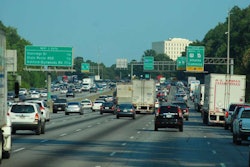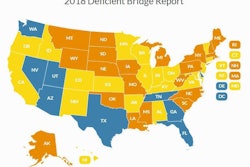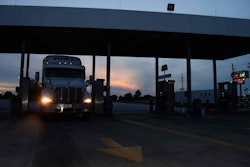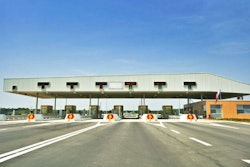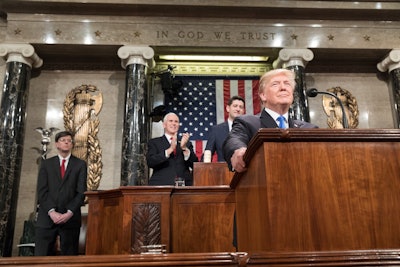 President Trump delivered his first State of the Union address on Tuesday. (Photo from The White House)
President Trump delivered his first State of the Union address on Tuesday. (Photo from The White House)President Trump on Tuesday night, in his first State of the Union address, asked Congress to pass legislation that would “generate” $1.5 trillion for spending on highways, bridges and other infrastructure projects. However, like Trump’s calls for high-price-tag infrastructure packages in the past, he seemingly envisions states, localities and the private sector picking up the bulk of that total, instead of the federal government.
The $1.5 trillion total is $500 billion more than Trump’s previous calls for using $200 billion in federal incentives and seed money to drum up funding from states and private investors for infrastructure projects. Trump offered no specifics Tuesday about his infrastructure funding plan, though the White House is expected to release a proposal in the coming weeks.
“As we rebuild our industries, it is also time to rebuild our crumbling infrastructure,” Trump said in the 80-minute address. “America is a nation of builders. I am asking both parties to come together to give us safe, fast, reliable and modern infrastructure that our economy needs and our people deserve.
“Every federal dollar should be leveraged by partnering with state and local governments and, where appropriate, tapping into private sector investment to permanently fix the infrastructure deficit.”

A six-page bulletin that surfaced earlier this month — and purported to be a leak of Trump’s infrastructure plan — called for loosening tolling restrictions as a means to bolster highway funding. Critics of Trump’s plan, including the American Trucking Associations, have said tolls are a dead-end toward overcoming the U.S.’ infrastructure funding deficit. ATA reiterated its stance Tuesday night after Trump’s speech concluded.
ATA last week released an outline for its vision for highway funding, calling on raising fuel taxes a nickel a year over the course of four years as a means to revive the Highway Trust Fund. The HTF, which has been supported by fuel taxes since the 1950s, has struggled to keep up with funding needs the past decade. The per-gallon tax on diesel and gasoline has not been raised since 1993, and inflation and more fuel efficient vehicles have undercut the HTF’s ability to fund highway projects.
“Roads are not a partisan issue – they’re driven on by Republicans and Democrats alike. As both sides of Capitol Hill know, modernizing our infrastructure will require a substantial investment – actual, real revenue. America cannot be rebuilt with funding gimmicks and finance schemes,” said ATA President and CEO Chris Spear in a statement Tuesday night.
The Owner-Operator Independent Drivers Association has also said it sides with a fuel tax increase over tolling efforts. “Our nation’s highway system has long been the envy of the world, but its condition is deteriorating” said Todd Spencer, acting president of OOIDA. “The heart of it is a fuel tax with revenues collected going to roads and bridges. It’s simple, efficient and it serves the very real needs of our country and its people.
“If elected officials think a fuel tax increase would be unpopular, wait until Americans encounter more and higher tolling,” said Spencer.
Likewise, the Alliance for Toll-Free Interstates on Tuesday night said any plan that leans on tolls for funding “is a complete reversal of President Trump’s commitment to putting America First.”
“Tolls are a wildly inefficient tax, sacrificing money that could go toward construction instead going to corporate profits and administrative costs,” said AFTI spokesperson Stephanie Kane. “In addition to the diversion onto secondary roads which causes congestion and public safety issues, tolls will do unimaginable harm to businesses, as shipping and manufacturing prices skyrocket to account for these new costs.”
In the official Democratic response directly after Trump’s address, Rep. Joe Kennedy (D-Mass.) did not mention infrastructure funding or highways.

